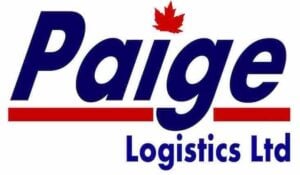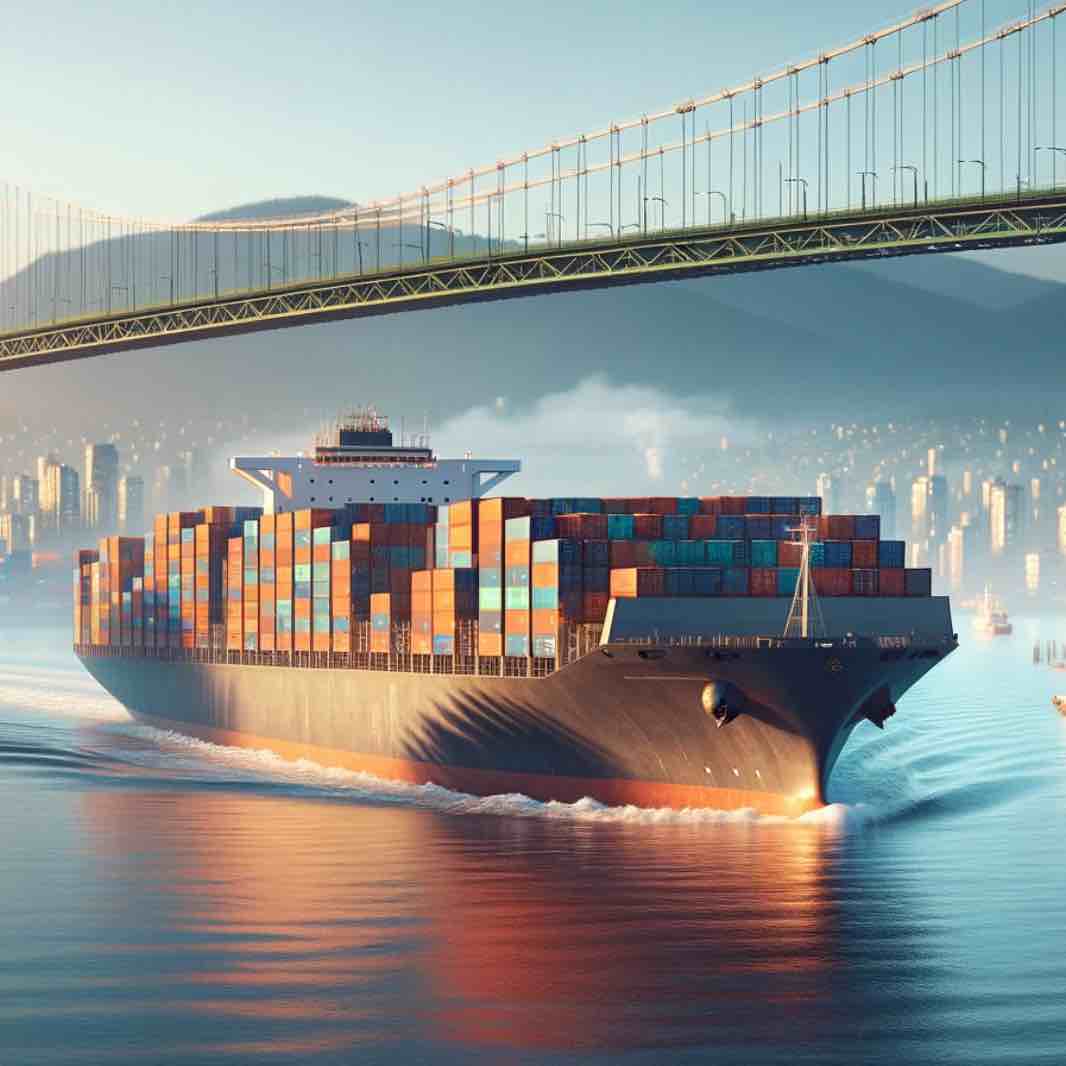Freight & Shipping Insurance
The Comprehensive Guide to Shipping Insurance for Freight in International Trade
Awarded #1 in Shipping
click on badge
Understanding the Basics of Freight Insurance
When we think of the shipping and transportation industry, our minds might automatically drift to images of trucks and ships carrying goods across the world. But there’s a critical component to this industry that often goes unnoticed yet plays a crucial role: freight insurance.
Freight insurance, essentially a type of protection for cargo during transportation, is indispensable. Imagine it as a safety net that ensures your goods are protected from unexpected incidents during transit. This type of insurance can cover a wide range of goods, from raw materials to finished products, offering comprehensive protection against damage or loss.
International Shipping Services
Types of Freight Insurance
The most common type of freight insurance is cargo insurance, which provides coverage for any damage or loss that may occur during transit. This insurance is flexible and can be customized to meet the specific needs of different shipments. There are mainly two types of cargo insurance:
- All-risk insurance provides broad coverage, protecting against all losses except those specifically excluded.
- Named peril insurance offers coverage only for the perils specifically named in the policy.
Another crucial type, often mandated by law, is carrier liability insurance. Unlike cargo insurance, this is provided by the carrier (like a trucking company or shipping line) and covers the carrier’s liability for loss or damage to the cargo. However, it’s generally less comprehensive than cargo insurance.
Additionally, there are specialized types of freight insurance tailored to specific transportation modes, such as ocean cargo insurance, inland marine insurance, and transportation insurance coverage. These policies are designed to address the unique risks associated with different transport methods.
The Benefits of Freight Insurance
The advantages of having freight insurance are numerous:
- Protection Against Loss or Damage: The primary benefit is the protection it offers against the loss or damage of goods. Whether it’s due to accidents, theft, or natural disasters, freight insurance provides financial security, ensuring that the value of the goods is compensated.
- Coverage for Legal Fees: In the complex web of shipping and transportation, disputes over responsibility for losses or damages are common. Freight insurance can cover the legal fees and expenses involved in resolving these disputes.
- Mitigation of Business Risks: By safeguarding against potential losses, freight insurance helps businesses manage and mitigate risks that could otherwise severely impact their bottom line.
- Compliance with Regulations: The shipping industry is heavily regulated, and non-compliance with legal requirements can lead to hefty fines. Freight insurance helps cover costs associated with maintaining compliance, protecting businesses from financial penalties.
Choosing the Right Freight Insurance Policy
Selecting the appropriate freight insurance policy requires careful consideration of several factors:
- Nature of the Cargo: Different types of goods may require specific coverage based on their susceptibility to damage.
- Mode of Transportation: Each transport method, whether sea, air, or land, comes with its own set of risks which the insurance must address.
- Risk Assessment: It’s crucial to evaluate all potential risks associated with the shipment, including those related to the cargo, transportation mode, and destination.
- Value of the Cargo: High-value cargo might necessitate additional coverage to fully protect its worth.
- Policy Evaluation: Comparing and assessing policies and providers ensures that you find the best coverage suited to your specific needs.
While often overlooked, freight insurance is a fundamental element of the transportation industry, providing essential protection and peace of mind for all parties involved in the shipment of goods. By choosing the right type of insurance, businesses can safeguard their operations against unforeseen events, ensuring smooth and secure transport of goods across the globe.
Shipping insurance provides coverage for the loss or damage of goods while they are being transported, including loading and unloading. It can apply to transportation over land, air, or sea.
Shipping insurance is crucial because it protects shippers against financial loss due to damaged or lost cargo. It offers peace of mind and financial protection, ensuring that businesses and consumers do not bear the brunt of unexpected costs.
The buyer assumes the risk once the goods are loaded onto the vessel. It’s crucial to understand the insurance coverage and prepare for any potential damages during transit.
The cost of shipping insurance depends on the value of the goods being shipped, the route, the mode of transportation, and the level of coverage selected. Generally, insurance costs a small percentage of the declared value of the goods.
To file a claim, you must provide proof of loss or damage, fill out the necessary claim forms, and submit any supporting documentation, such as photos, receipts, and delivery records, within the timeframe specified by the insurance provider.
While often used interchangeably, shipping insurance typically refers to broader coverage that can include risks associated with the entire shipping process, including storage and handling. Freight insurance usually focuses more narrowly on the actual transportation risks to the cargo.
Shipping insurance is not legally mandatory but may be required by shipping companies or as part of contractual agreements in international trade. It’s often recommended to minimize financial risk.
Yes, shipping insurance can cover both domestic and international shipments. International shipping insurance is especially important due to the increased risks and complexities involved in crossing international borders.
Common exclusions in shipping insurance policies include damage due to improper packing, inherent vice (natural decay or deterioration), delay, and loss of market. Policies may also exclude certain hazardous materials or high-risk items unless specifically declared and included in the coverage.
When selecting a shipping insurance provider, consider factors such as reputation, customer service, claims processing efficiency, coverage options, and cost. Comparing quotes and reading reviews can also be helpful in making an informed decision.

Author, Founder & Chief Executive Officer of Paige Logistics Ltd. → Experienced operations leader with a demonstrated history of working in the Freight Shipping, Trucking and the Railroad Industry.
Stuck for finding the best freight forwarder China to Canada? Shipping with Paige Logistics! Offering extended cross border shipping Canada to California.
2023 Global Leader In Shipping
Freight Carriers Association of a Canada
Related Posts

Freight Brokerage Unlocking the Potential of Freight Brokerage Solutions for Your Business Click For Best Price Awarded #1 in Shipping click on badge Deliveries +

Understanding Specialized Transport Click For Best Price From Giant Machines to Hazardous Materials: The Wild Side of Specialized Transportation! Awarded #1 in Shipping click on

Seasonal Load Restrictions How to Outsmart Seasonal Load Limits and Save Big! Click For Best Price Awarded #1 in Shipping click on badge + 0

Mastering the Intricacies of CFR Incoterms A Comprehensive Guide Click for Best price CLICK ON BADGE Deliveries + 0 Happy Clients 0 manufacturers 0 Awards

CIF Incoterms The Comprehensive Guide to CIF (Cost, Insurance & Freight) in International Trade Click For Best Price Awarded #1 in Shipping click on badge

The Ultimate Guide to Freight Shipping Documentation Fast Worldwide Freight Quote Awarded #1 in Shipping click on badge + 0 Deliveries 0 Happy Clients 0


